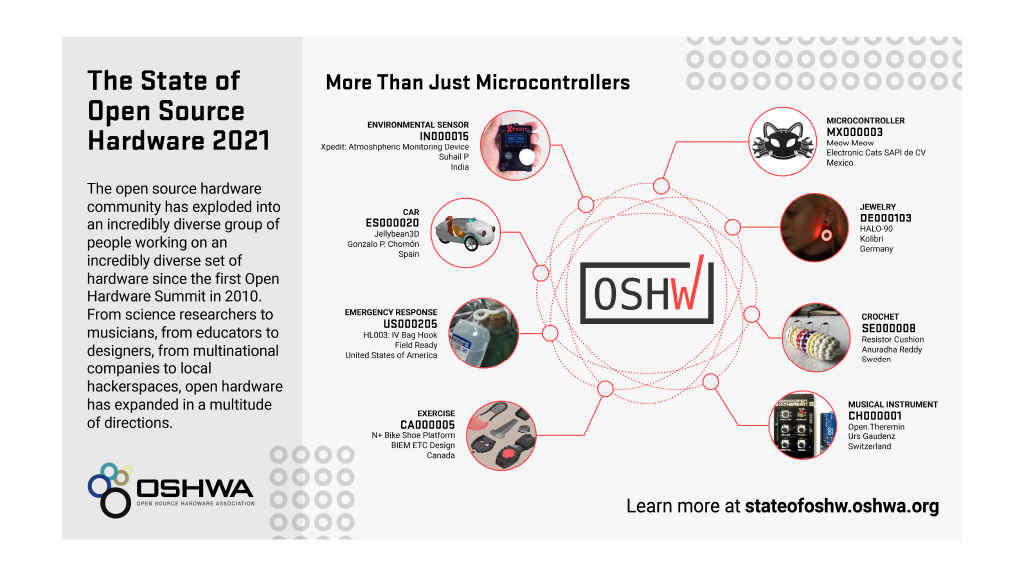Today OSHWA, in collaboration with the Engelberg Center on Innovation Law & Policy at NYU Law, is excited to launch The 2021 State of Open Source Hardware. This graphic report builds on data from OSHWA’s Open Hardware Certification Program, the annual Open Hardware Summit, and the annual Open Hardware Community Survey.

The state of open source hardware is strong. In the eleven years since the first Open Hardware Summit we have seen open hardware grow, with new communities creating new hardware for new uses around the world. Hundreds of pieces of open source hardware have been certified as compliant with the Open Hardware Definition from countries on every continent except Antarctica.

A wide range of companies have been built and grown on the foundation of open source hardware. Dozens of Ada Lovelace Fellows have helped to diversify the open hardware community. Nonprofit organizations in academia, conservation, science, medical, and more have helped to broaden the impact of open hardware in innumerable ways.
The results of the community survey makes it clear that people come to open hardware for a range of reasons and use open hardware to address a range of needs. However they start with open hardware, once they start using it they are hooked. Community members study designs, adapt them, and build upon existing designs in order to achieve their goals. Open hardware is used in teaching, the development of commercial products, and everything in between.
What are you waiting for? Click over, check it out, and let us know what you think. While the state of open source hardware is strong in 2021, we think it may get even stronger in the future.





